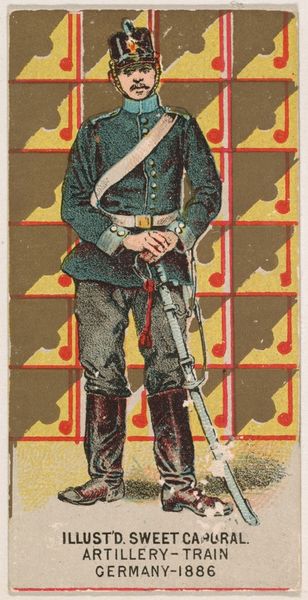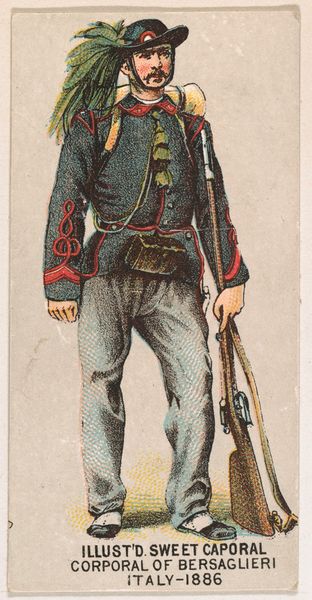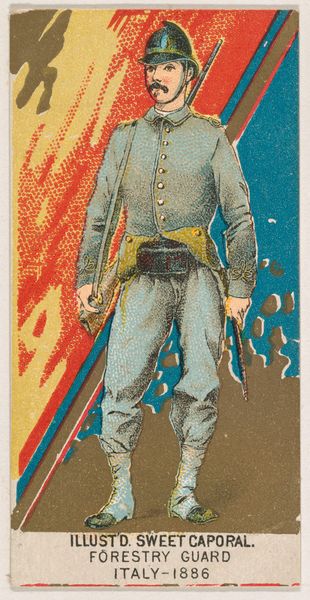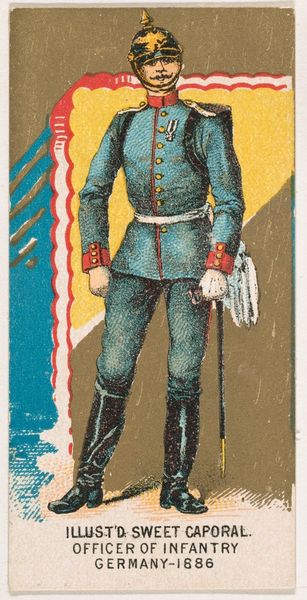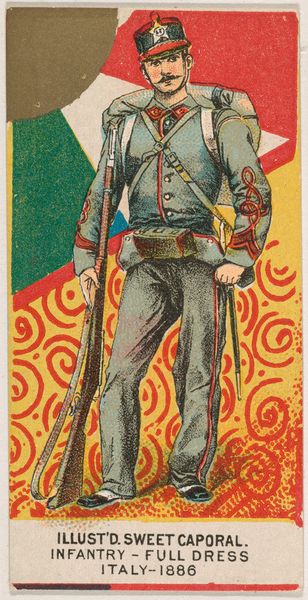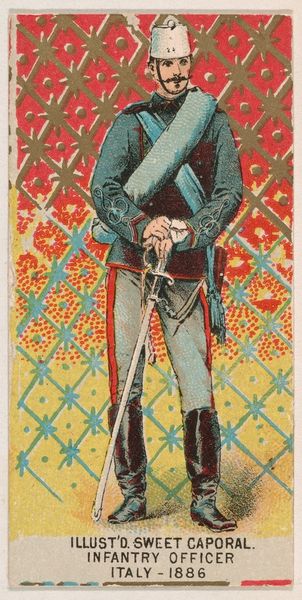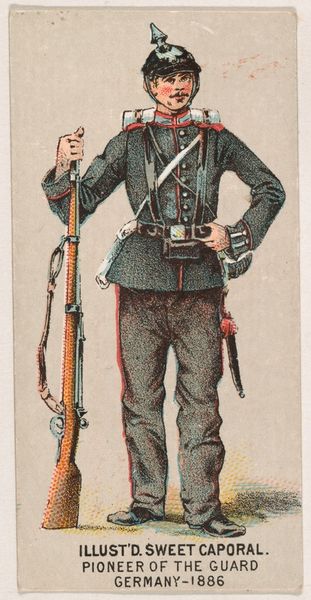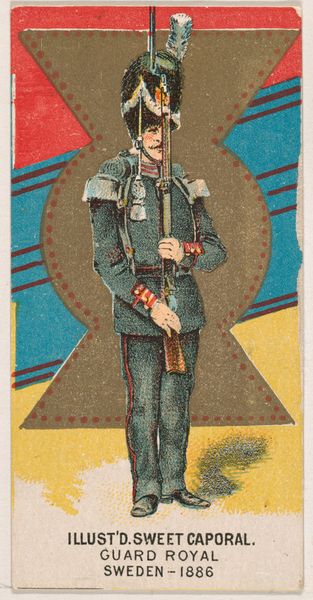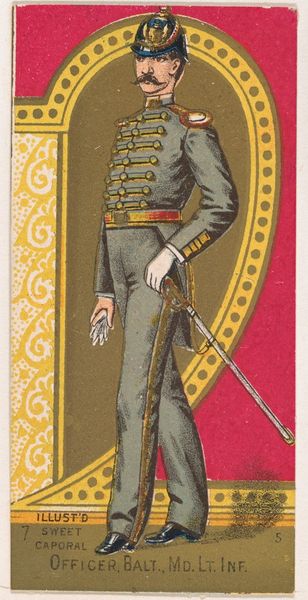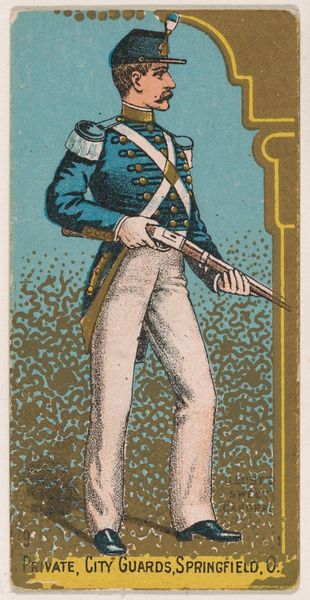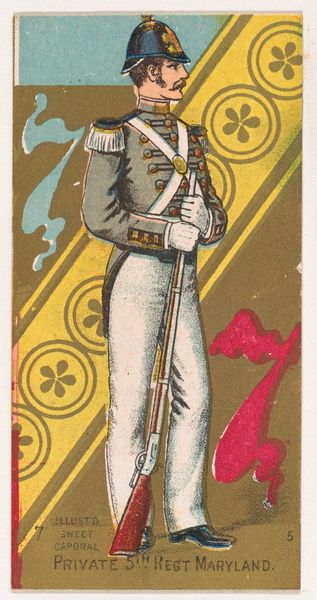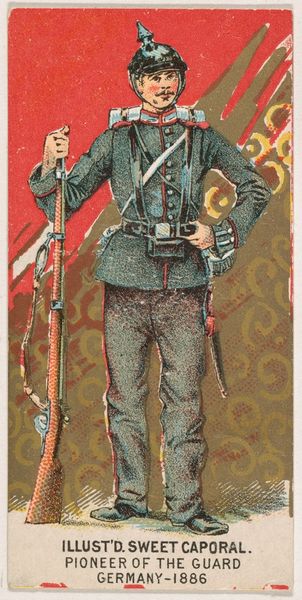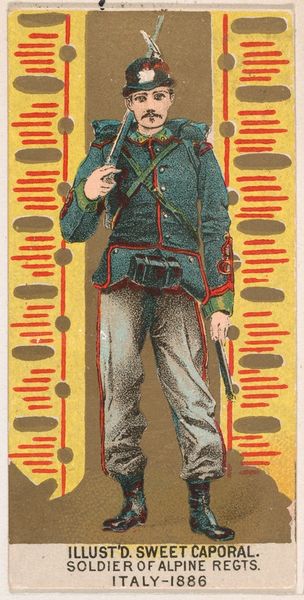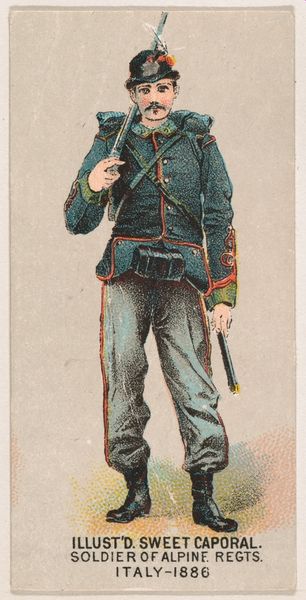
Corporal of Bersaglieri, Italy, 1886, from the Military Series (N224) issued by Kinney Tobacco Company to promote Sweet Caporal Cigarettes 1888
0:00
0:00
drawing, print
#
portrait
#
drawing
# print
#
soldier
#
men
#
watercolour illustration
#
history-painting
Dimensions: Sheet: 2 3/4 × 1 1/2 in. (7 × 3.8 cm)
Copyright: Public Domain
Curator: Here we have a chromolithograph trade card from 1888 titled "Corporal of Bersaglieri, Italy, 1886," part of a military series issued by Kinney Tobacco Company. Editor: It’s striking. The rigid figure of the soldier against that almost Mondrian-like backdrop feels like a very odd tension, doesn’t it? Almost unsettling in its presentation. Curator: Absolutely, the graphic boldness for the background clashes in interesting ways. These cards, inserted into cigarette packs, often romanticized military figures, tapping into nationalist sentiments to promote a product. The Bersaglieri were known for their swiftness and distinctive feathered hats. Editor: Yes, the feathers. It's an overt display, very much meant to project power. But consider who it targets, consumers buying cigarettes: everyday people, likely a means to enforce ideas about nation and belonging. Who is considered to be the proper citizen through the military imagery they are served up. Curator: The figure is presented almost as a commercial symbol. The company leveraged these images to associate "Sweet Caporal" cigarettes with ideals of strength and national pride. A kind of patriotic marketing, we might call it. Editor: This type of representation raises some questions. To what extent does this idealized portrait normalize and sanitize a militarized perspective, presenting military action as a romanticized display rather than grappling with the realities of imperialism, colonization, and violence? It's important to look critically at how visual culture normalizes such themes, especially when attached to consumer goods. Curator: Precisely, trade cards were ephemeral objects, yet they played a significant role in shaping and disseminating cultural attitudes towards nationhood and the military. And for me, looking back we also start questioning the concept of public role, who had it and how has this role shaped the contemporary ideas of gender and race. Editor: Yes, by revealing the hidden ideologies embedded within these everyday artifacts, we can understand that such artworks have more complex stories to tell. Curator: It certainly leaves one pondering the complicated intersection of commerce, national identity, and the politics of representation. Editor: And that's where its enduring value and urgent lessons for us lies today.
Comments
No comments
Be the first to comment and join the conversation on the ultimate creative platform.
